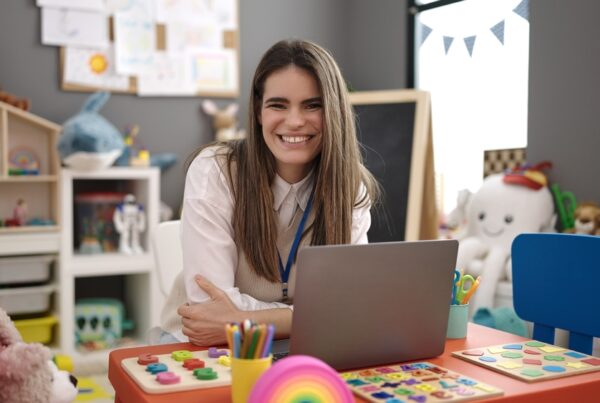As summer heats up across Australia, millions of families will be unable to keep their kids cool in dangerously hot homes, with cost-of-living pressures stretching households to the financial limit, a new report from Parents for Climate and Sweltering Cities warns.

The report, Hothouse Australia: Our kids at risk as heat soars, highlights that millions of children, including over 760,000 children living in poverty in Australia, face heightened risks to their health and education from exposure to extreme summer heat at home.
Around 3 in 4 lower-income households, already making hard choices to keep food on the table, are also likely to cut back on the use of air conditioning and cooling appliances due to cost pressures, despite living in poorly insulated and energy-inefficient homes.
North Melbourne single mum, Kirsten Lee, is one of them and dreads the strain the heatwave will add to already stretched finances.
“We are so careful with our money, but running the air conditioner this summer just won’t be affordable for us. Now with the kids home from school, I’m worried about my kids’ health during the El Nino summer ahead.
“The kids always turn the lights off as much as possible, and I‘ll be shopping at the op-shop for Christmas presents this year. The cost of everything keeps going up, and even small increases create gaps that I struggle to cover.
“Earlier this year I had to choose between getting proper insulation or my daughter’s healthcare. Now I’m having to choose between getting help for my son and paying the mortgage and power bills.
“I know how big an impact the heat has on children. Last year we were in a rental where the bedrooms were over 30°C on some nights. We tried to keep cool by putting a wet cloth on the fan, but it doesn’t really work.”
The snapshot analysis of latest data shows:
- Millions of children, especially the more than 760,000 children living in poverty in Australia, face heightened risks to their health and education in millions of poorly insulated, energy inefficient homes across Australia.
- Families are under enormous financial pressure, with 3 in 4 lower-income households likely to cut back on the use of fans and air conditioners due to cost pressures. Additionally, around 1 in 5 Australians cannot afford to cool their home.
- Not all schools are heatsafe. Some states have no requirements for air-con in classrooms, including 350 schools that missed out in NSW. Playground surface temperatures in some cities can exceed 80C.
- Without action this crisis will only worsen. By 2050, hundreds of thousands of Australian children will face severe and extreme heat that risks their life and health, and 7 million will face higher and more intense heatwaves.
- Kids are more susceptible to a range of health issues due to extreme heat, and less capable of mitigating these risks.
Parents for Climate and Sweltering Cities are calling on the Commonwealth to work with the states to protect the most vulnerable Australians from the twin threats of rising heat and rising costs.
The report proposes initiatives including the rollout of efficient reverse-cycle air conditioning units powered by rooftop solar panels in all low-income households, all schools and childcare centres, and better thermal insulation in all Australian homes to stop kids sweltering in unsafe homes and learning environments.
Children already carry the unfair burden of the fossil-fuelled climate crisis. To protect Australian children in a world increasingly defined by heat, the nation needs to make their homes and learning environments safer and cut carbon pollution. Investing in thermal protection and air conditioning powered by rooftop solar can do both.
Nic Seton, Parents For Climate CEO said, “Millions of families are being left to solve an impossible problem of keeping kids safe in record heat while facing rising costs of living. As kids start their holidays, their safety is at risk when every home should be a heat refuge.
“Hot homes can damage our kids’ health and make their lives harder now and into the future. Simple measures such as installing energy efficient air-conditioning powered by rooftop solar in homes would deliver the twin benefits of keeping our kids safe and driving down our carbon emissions.
“Our children will pay the biggest price of rising temperatures, supercharged by burning coal and gas, particularly those in low income families. Their lives will be increasingly defined by how well we can adjust to the new reality of a hothouse Australia.”
Emma Bacon, Sweltering Cities Executive Director said, “Australian homes are dangerously hot, and the cost of living crisis means more people than ever are struggling to keep cool. This summer we’re expecting high temperatures driven by El Niño and climate change. Families across the country are facing baking hot homes and sleepless nights.
“Renters are telling us that they can’t make simple changes to cool down their homes. We hear from people who are refused things like better blinds, a screen door or insulation.
“Heatwaves are our deadliest environmental disaster and kids are one of the at-risk groups. We need to make sure they can be safe at home or school during heatwaves.
“It’s about more than being uncomfortable, extreme heat can have significant short and long-term impacts, especially on children. They face an elevated risk of severe heat stroke and heat stress, and increased risk of asthma, chronic respiratory illnesses, cardiovascular disease and even death. We need to do more to protect kids and other vulnerable groups.”









